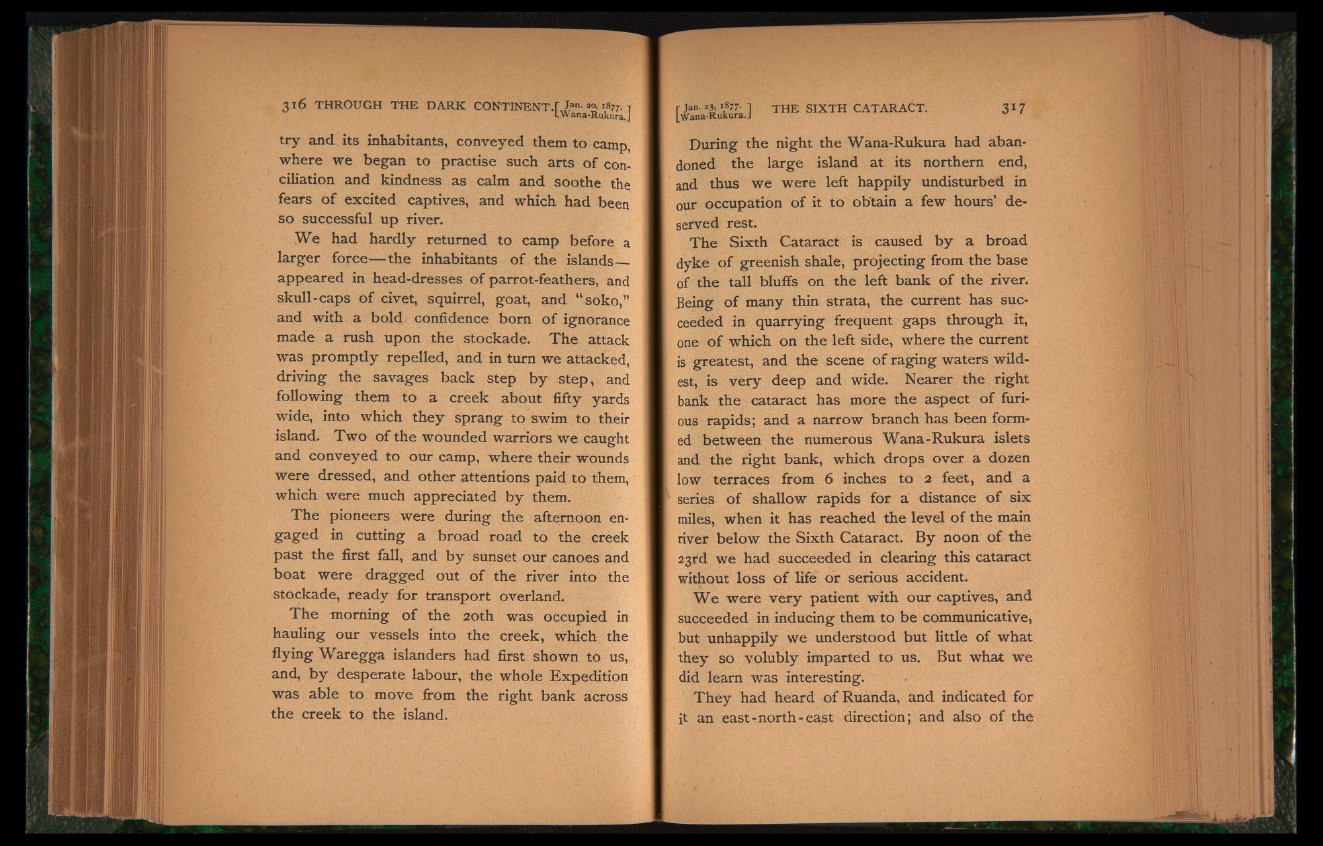
try and its inhabitants, conveyed them to camp,
where we began to practise such arts of conciliation
and kindness as calm and soothe the
fears of excited captives, and which had been
so successful up river.
We had hardly returned to camp before a
larger force— the inhabitants of the islands—
appeared in head-dresses of parrot-feathers, and
skull-caps of civet, squirrel, goat, and “ soko,”
and with a bold confidence born of ignorance
made a rush upon the stockade. The attack
was promptly repelled, and in turn we attacked,
driving the savages back step by step, and
following them to a creek about fifty yards
wide, into which they sprang to swim to their
island. Two of the wounded warriors we caught
and conveyed to our camp, where their wounds
were dressed, and other attentions paid to them,
which were much appreciated by them.
The pioneers were during the afternoon engaged
in cutting a broad road to the creek
past the first fall, and by sunset our canoes and
boat were dragged out of the river into the
stockade, ready for transport overland.
The morning of the 20th was occupied in
hauling our vessels into the creek, which the
flying Waregga islanders had first shown to us,
and, by desperate labour, the whole Expedition
was able to move from the right bank across
the creek to the island.
r Jan. *3. >877- 1 THE SIXTH CATARACT. 3 1 7
[W ana-Rukura. J
During the night the Wana-Rukura had abandoned
the large island at its northern end,
and thus we were left happily undisturbed in
our occupation of it to obtain a few hours’ deserved
rest.
The Sixth Cataract is caused by a broad
dyke of greenish shale, projecting from the base
of the tall bluffs on the left bank of the river.
Being of many thin strata, the current has succeeded
in quarrying frequent gaps through it,
one of which on the left side, where the current
is greatest, and the scene of raging waters wildest,
is very deep and wide. Nearer the right
bank the cataract has more the aspect of furious
rapids; and a narrow branch has been formed
between the numerous Wana-Rukura islets
and the right bank, which drops over a dozen
low terraces from 6 inches to 2 feet, and a
series of shallow rapids for a distance of six
miles, when it has reached the level of the main
river below the Sixth Cataract. By noon of the
23rd we had succeeded in clearing this cataract
without loss of life or serious accident.
We were very patient with our captives, and
succeeded in inducing them to be communicative,
but unhappily we understood but little of what
they so volubly imparted to us. But what we
did learn was interesting.
They had heard of Ruanda, and indicated for
it an east-north-east direction; and also of the